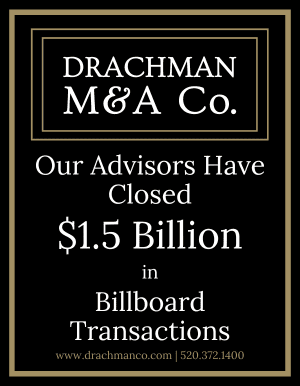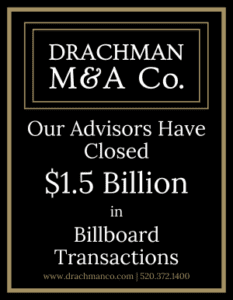
By Richard Rothfelder, Rothfelder & Falick
An all too familiar piece of correspondence received by our billboard clients from TxDOT or other State DOTs is the Notice of Administrative Penalties or Notice of Illegal Sign. You know the form, in which TxDOT recites vague factual allegations, which in turn supposedly violate one or more of a laundry list of TxDOT rules on height, size, location, or lighting of commercial off-premise signs. The Notice then concludes with the warning that, unless the sign is removed within 45 or so days, administrative, civil, and/or criminal penalties will be imposed, at a rate of up to $1,000 per day commencing from discovery of the violation and continuing until the sign is removed. Thus, the client is faced with the financially untenable decision of thousands or even millions of dollars in penalty exposure, or the unfair defense of the allegations in an administrative court (known as the State Office of Administrative Hearings or SOAH) before an administrative law judge employed by the State without a jury pursuant to SOAH’s procedural and evidentiary rules.
The US Supreme Court issued an opinion on June 27, 2024, which may eventually make this decision somewhat less of a Hobson’s Choice for a billboard operator. In Securities and Exchange Commission vs Jarkesy, the Court ruled that the Seventh Amendment entitles a defendant to a jury trial when the SEC seeks civil penalties against him for securities fraud. In the 6 to 3 decision typical of the Court’s current ideological make up, Chief Justice Roberts wrote the majority opinion, in which a couple of investment advisors were adjudged guilty of securities fraud and fined $300,000 by an administrative law judge in a SEC enforcement action. The Firth Circuit Court of Appeals vacated the order, and the Supreme Court affirmed, with a colorful dissent by Justice Sotomayor.
The Majority begins its opinion by explaining that “the right to trial by jury is of such importance and occupies so firm a place in our history and jurisprudence that any seeming curtailment of the right has always been and should be scrutinized with the utmost care.” It goes to quote the Seventy Amendment, which guarantees that in “suits at common law… the right of trial by jury shall be preserved.” The Court then concluded “the SEC’s antifraud provisions replicate common law fraud, and it is well established that common law claims must be heard by a jury.” In so ruling, the so-called “public rights” exception to the right to trial by jury was also rejected in the Majority’s opinion, which recognized that “civil penalties are a type of remedy at common law that could only be enforced in courts of law.”
Justice Sotomayor, joined by Justices Kagan and Jackson, argued in dissent that the “decision is a massive sea change. Litigants seeking further dismantling of the ‘administrative state’ have reason to rejoice in their win, [and] today’s ruling is part of a disconcerting trend: When it comes to the separation of powers, this Court tells the American public and its coordinate branches that it knows best.” The Dissenters go on to predict other administrative agencies besides the SEC will be similarly vulnerable to what they call the Court’s “power grab.”
While the Jarkesy decision is limited to SEC enforcement actions seeking civil penalties for violations of its antifraud statutes, the Dissent suggests the trend of diminishing the powers of administrative agencies may be continued by the Majority on the Supreme Court. It becomes obvious, therefore, to compare the SEC to TxDOT and other State DOTs, both of which have the power to impose millions in penalties to deter and punish the alleged wrongdoer, in proceedings the agency initiates and conducts under its own rules, before administrative law judges instead of juries. Time will tell if a jury trial is constitutionally required in administrative proceedings brough by State DOTs seeking penalties for alleged violations of their billboard regulations; but in the meantime, the billboard operator has a new defensive argument when they do so.
To receive a free morning newsletter with each day’s Billboard insider articles email info@billboardinsider.com with the word “Subscribe” in the title. Our newsletter is free and we don’t sell our subscriber list.
Paid Advertisement

















